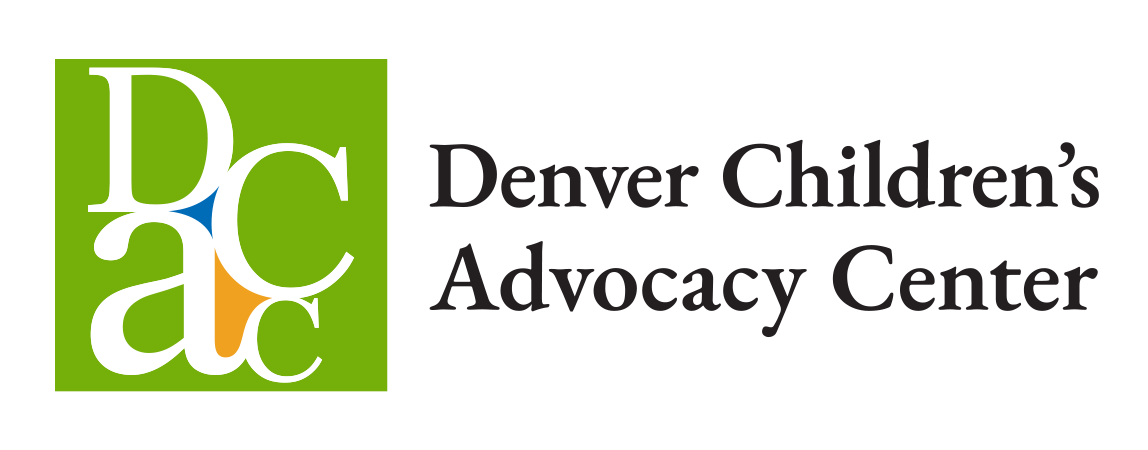In this second of two blog posts (first blog post here), we continue sharing how DCAC staff members participated in leadership conferences and opportunities to enhance their skills and connections this past year. These efforts lean into DCAC’s values of excellence, trauma-informed, child-centered, inclusion, and compassion.
From therapy to presenting at conferences, every member of our team built skills and connections to ensure DCAC continues our mission to prevent abuse, strengthen families, and restore childhood.
Expressive Arts Therapy and Synergetic Play Therapy (SPT) conferences
Two of DCAC’s Bilingual Child and Family Therapists, Emily Murphy and Ashley Khan, each enhanced their therapy expertise through conferences this past year: Emily attended the Expressive Arts Therapy in Santa Fe in May, and Ashley attended the Synergetic Play Therapy (SPT) Conference in Chicago this past March
“I was looking to learn creative interventions that could enhance the work I do in sessions with clients,” Emily said. “I love doing healing work with clients who have experienced trauma but after doing this work for six years I had seen how sometimes clients get stuck and need different ways to express themselves and also as a clinician having new interventions helps mitigate burnout.”
Emily also shared that she has already implemented many new activities that she learned at the training into her sessions with clients.
“I’ve been using bilateral art making (drawing with both hands) to introduce bilateral movement to clients before starting EMDR and I’ve been using some of the other activities we did to talk about nervous system regulation and enhance relaxation and engagement,” Emily shared.
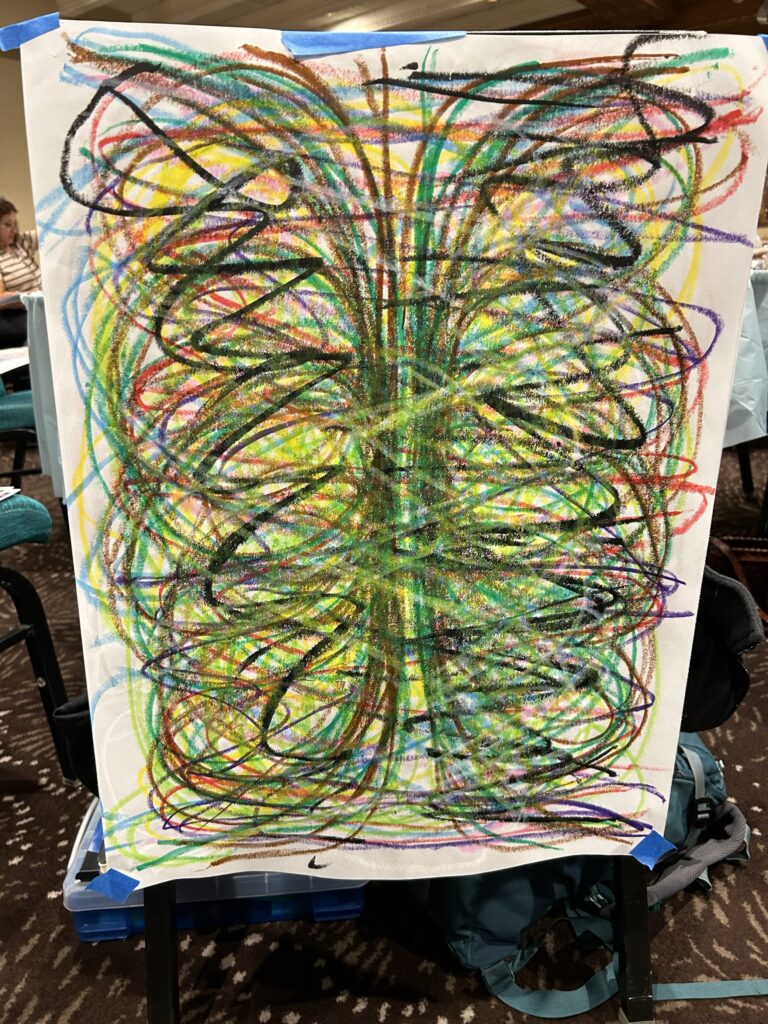

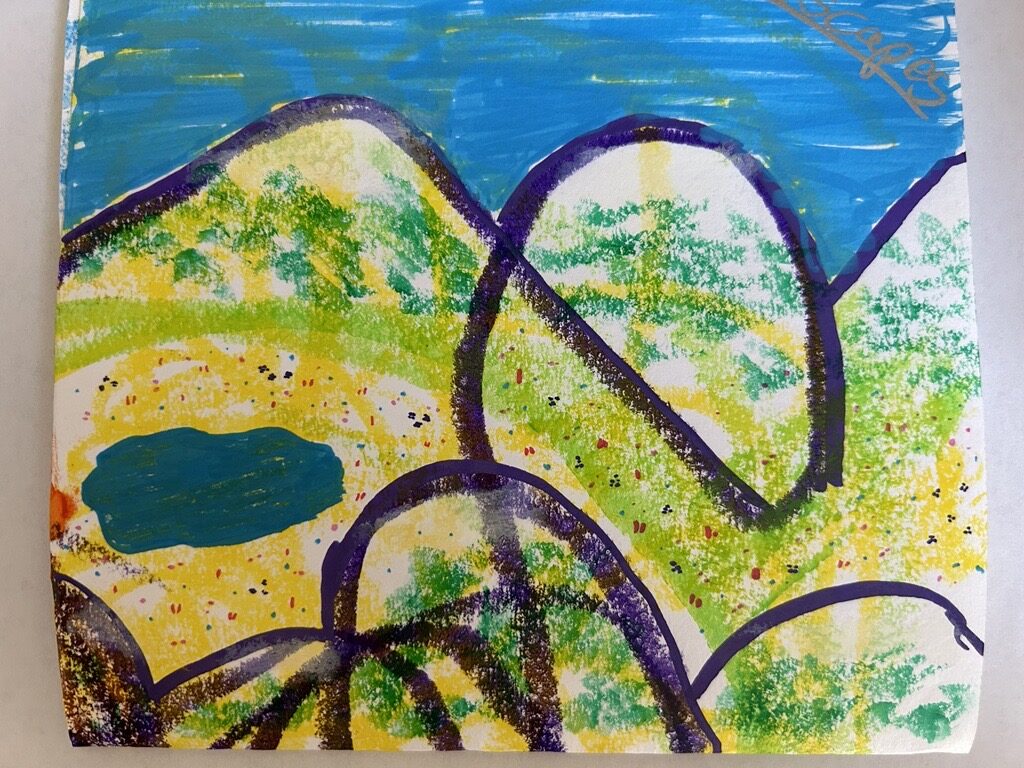


Both Emily and Ashley shared that their individual experiences also helped them learn new skills to regulate their own nervous systems better.
“SPT is a fun and authentic way to incorporate co-regulation into my trauma therapy sessions,” Ashley said. “For example, I now use a SPT sand tray in sessions, which has created new opportunities for children to explore difficult emotions in a way that feels safe and contained. I’ve also been more intentional about tracking my own nervous system during sessions—recognizing when I need to regulate myself in order to better support clients as they process overwhelming experiences. These shifts have not only enhanced my ability to stay grounded with clients but have also supported children in feeling more regulated and empowered in session.”
For Ashley, the experiential nature of the training and the setting of the training at the Museum of Contemporary Art in Chicago, added extra inspiration.
“One of my favorite aspects was the experiential nature of the training, led by Lisa Dion, the founder of SPT,” said Ashley, who is pictured below on the left with Lisa. “We weren’t just learning theory—we were practicing skills in real time. Getting to implement strategies during breakout activities helped me feel more confident in applying them with clients.”

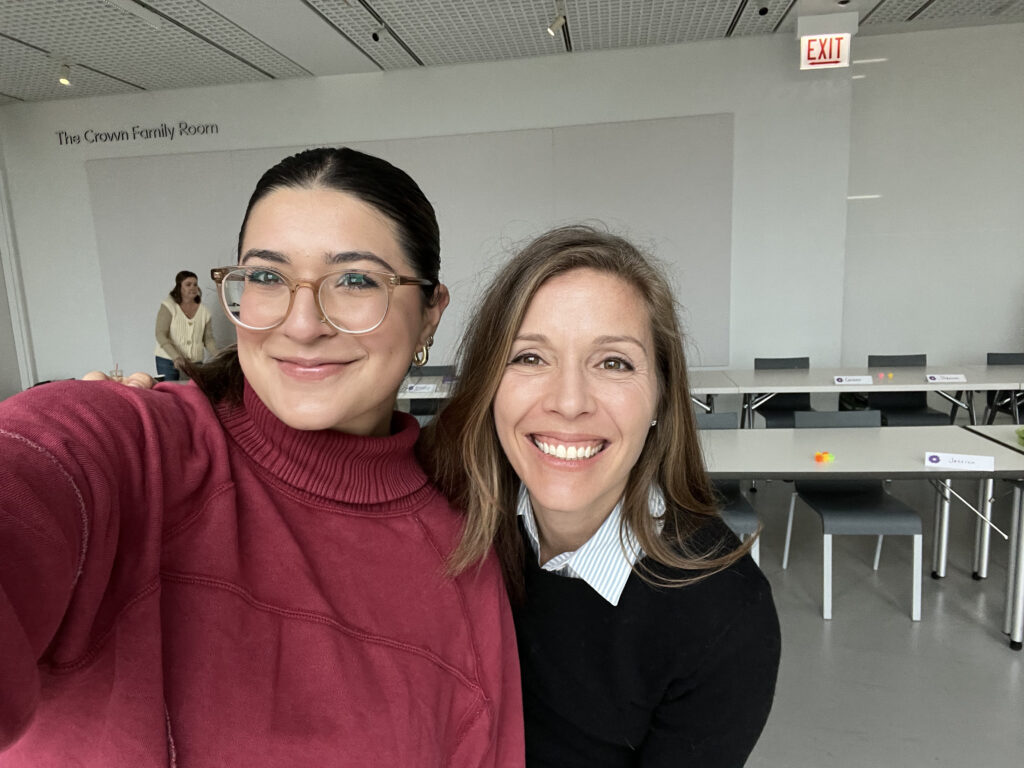
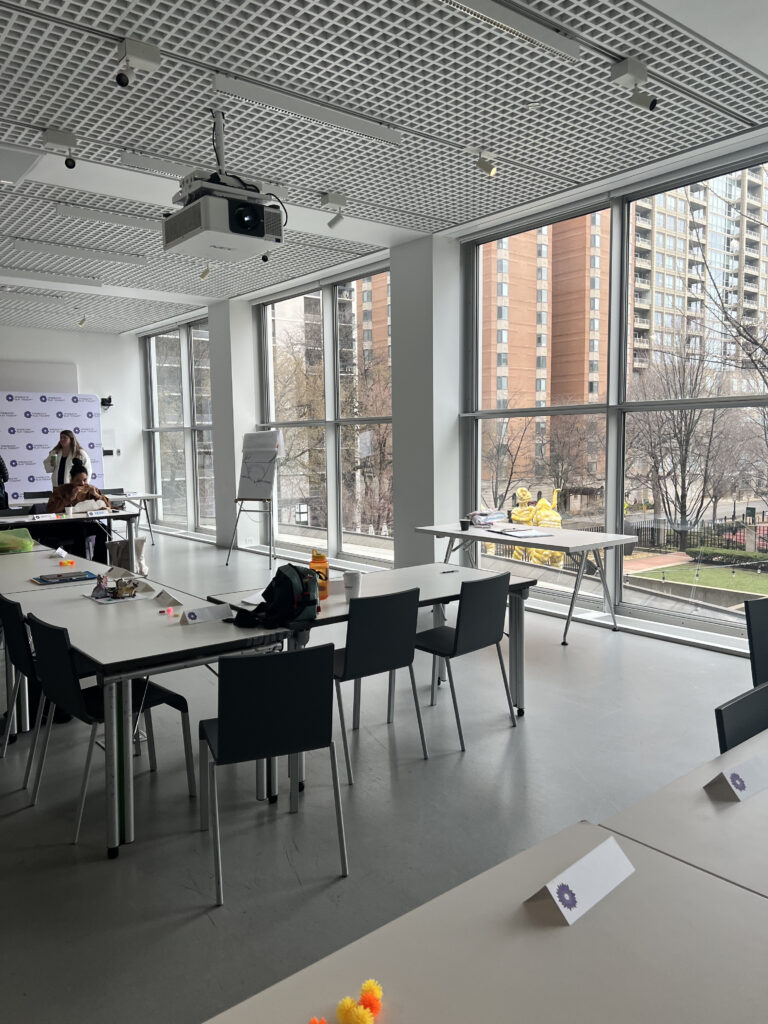
COVA Conference Narrative Fragmentation Presentation
On Tuesday, September 30th, Hollie Reinhart, DCAC’s Director of Rapid Response and a Forensic Interviewer, and Angel Gudeman, DCAC Bilingual Forensic Interviewer, presented at the COVA (Colorado Organization for Victim Assistance) Conference in Keystone, Colorado. Their presentation, Broken Stories or Broken Systems? Narrative Fragmentation and Its Implications for Child Credibility, focused on the topic of narrative fragmentation. They covered how to spot narrative fragmentation during a child’s outcry and how to better support a child who is disclosing abuse in a fragmented way. They also highlighted a neuroscience approach to understanding memory, trauma, and access to justice.
“The highlight in our session was the engagement we received from the audience,” Hollie said. “This has been very much a passion project for Angel and I, and so it felt validating to have other professionals in the room on the same page as us and interested in our theories.”
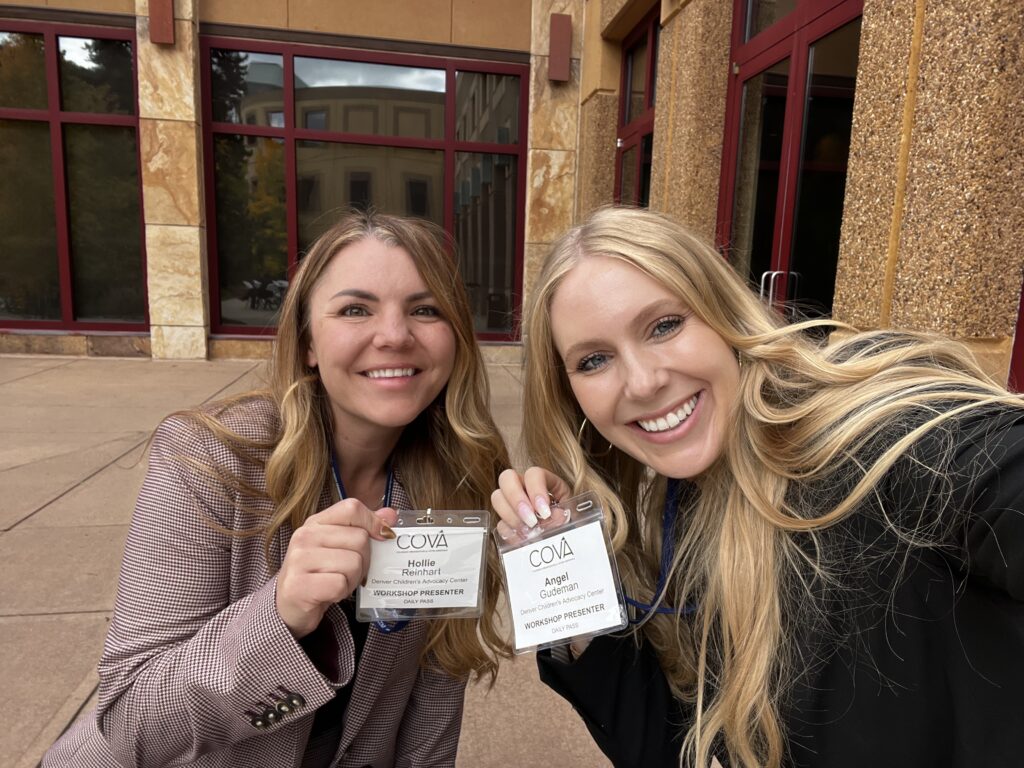
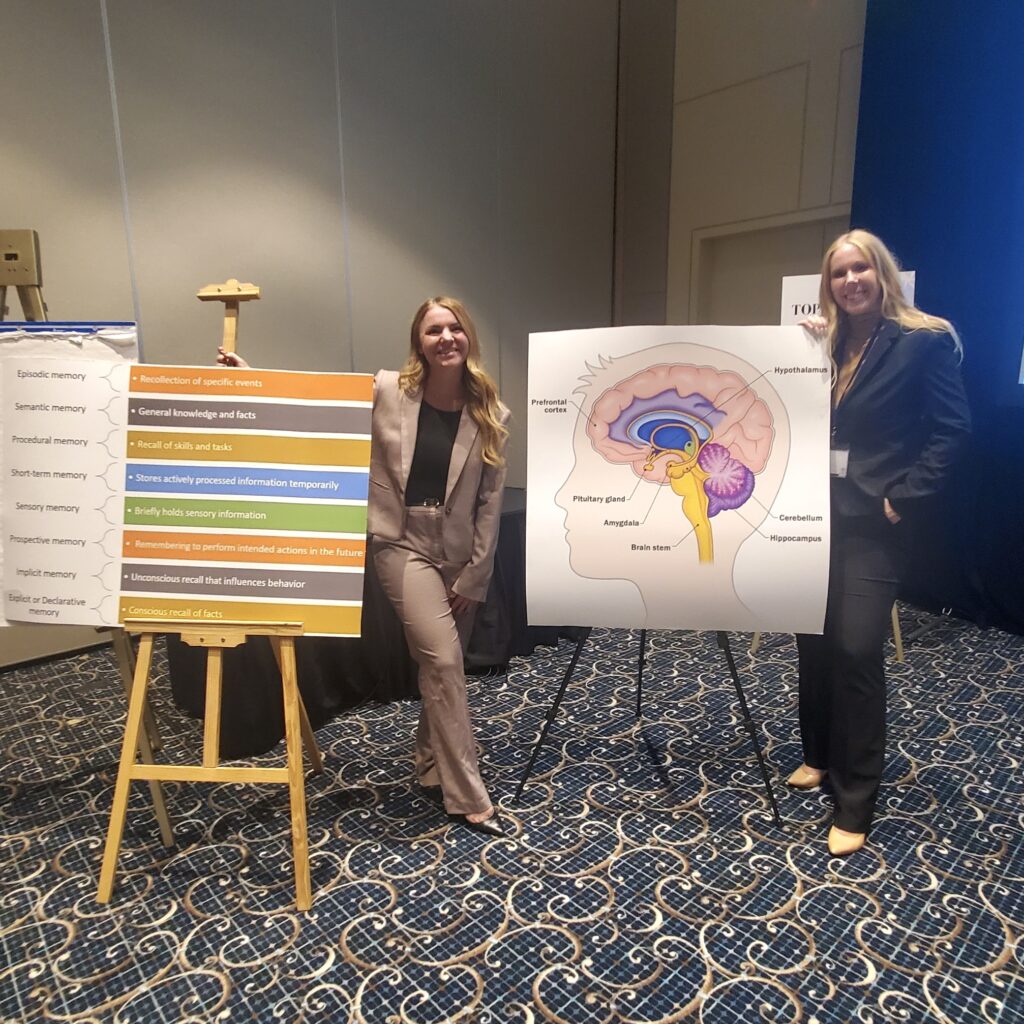
Fostering Hope through Camp Counseling
While conferences specifically-focused on DCAC services are important, so, too, are opportunities for our staff to engage with the community and support children well beyond their time of needing DCAC services. One example of this is Samantha Mastaler, DCAC Child and Family Therapist and Mental Health Consultant, who has been serving as a camp counselor at Camp HOPE America in Colorado the past four years
The Rose Andum Center, a long-time partner of DCAC’s, started facilitating the nationwide Camp HOPE America in Colorado 4 years ago.
“I learned more about camp and was immediately interested–the opportunity to be outside, try new things and be without technology for a week is such a great thing for any child, and not every child gets that opportunity,” Samantha said. “I also thought it just sounded like a lot of fun. DCAC has been so supportive in letting me go every year, which I appreciate so much.”
Since its inception in Colorado, Samatha has been a counselor at the week-long camp for kids ages 7-16 for children who have experienced trauma and plans to continue to do so for years to come.
“Hope truly can be found in the big moments and the small moments,” Samantha said. “Hope can be a camper who has never seen a horse before try riding one and come back from the trail ride with the biggest smile on their face. Hope can be a camper sharing their stuffed animal with another camper who is homesick. Hope is all around us and kids are resilient. Camp Hope is a great setting to see kids thrive as they find hope around them.”
One of Samantha’s favorite parts of camp is during the evening campfires where campers roast marshmallows, sing songs, and share their definitions of hope.
“Most of the places the campers say they see hope is other campers trying something that was scary to them and succeeding or being a good friend,” Samantha said. “It usually makes me tear up.”

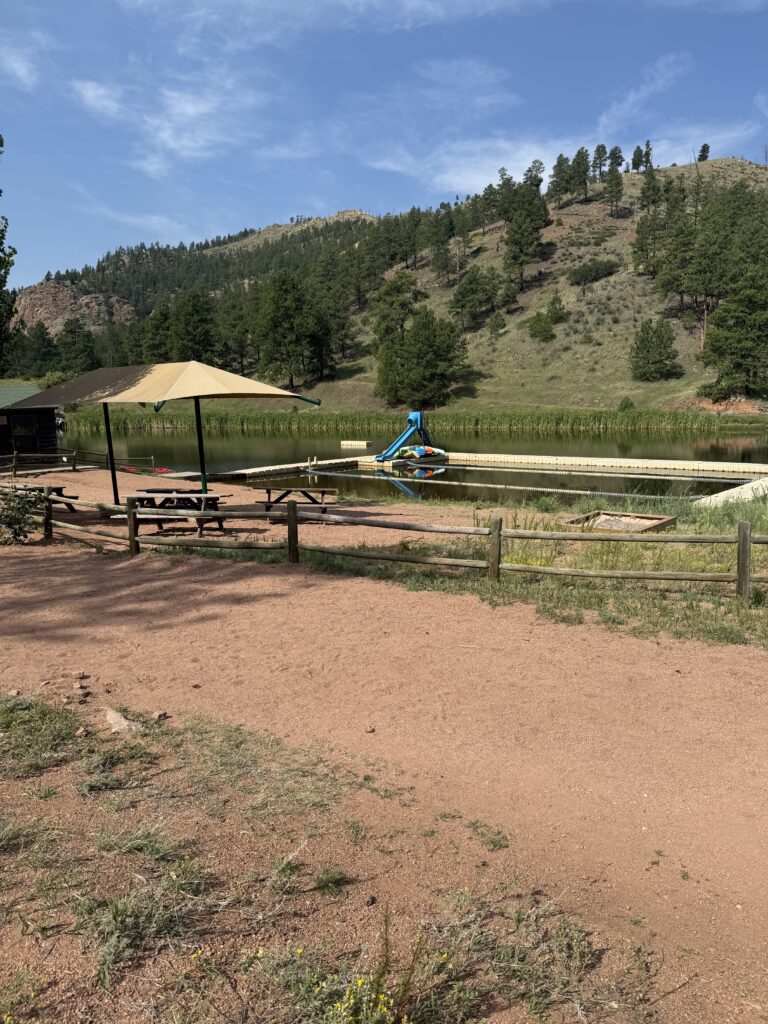
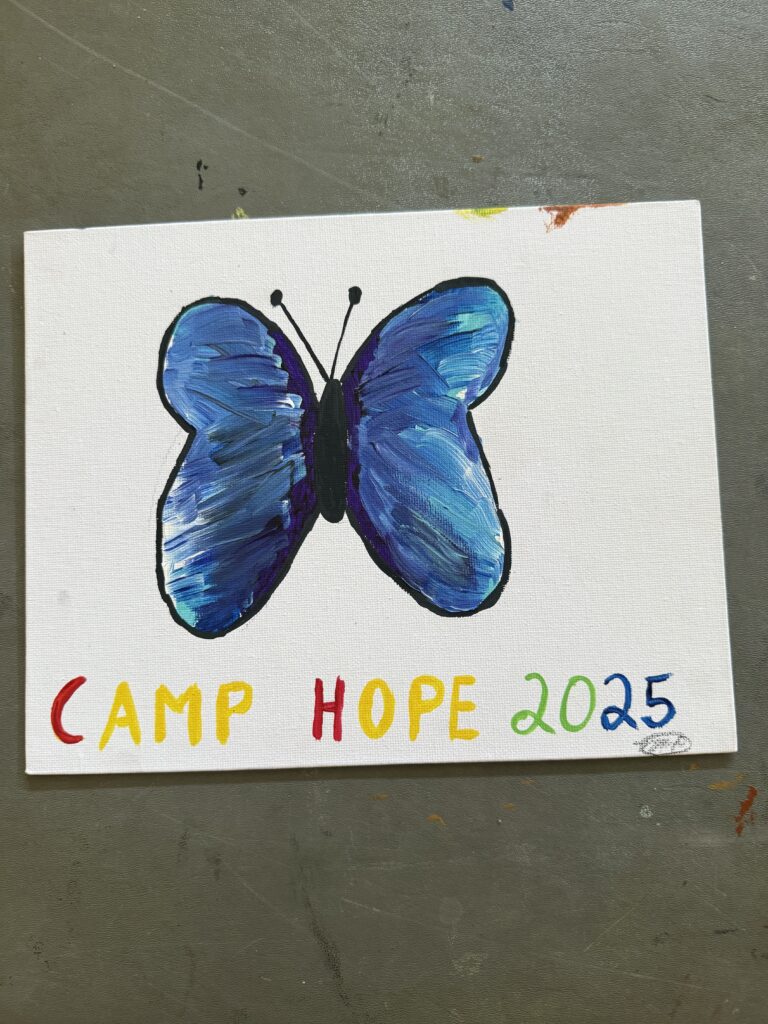
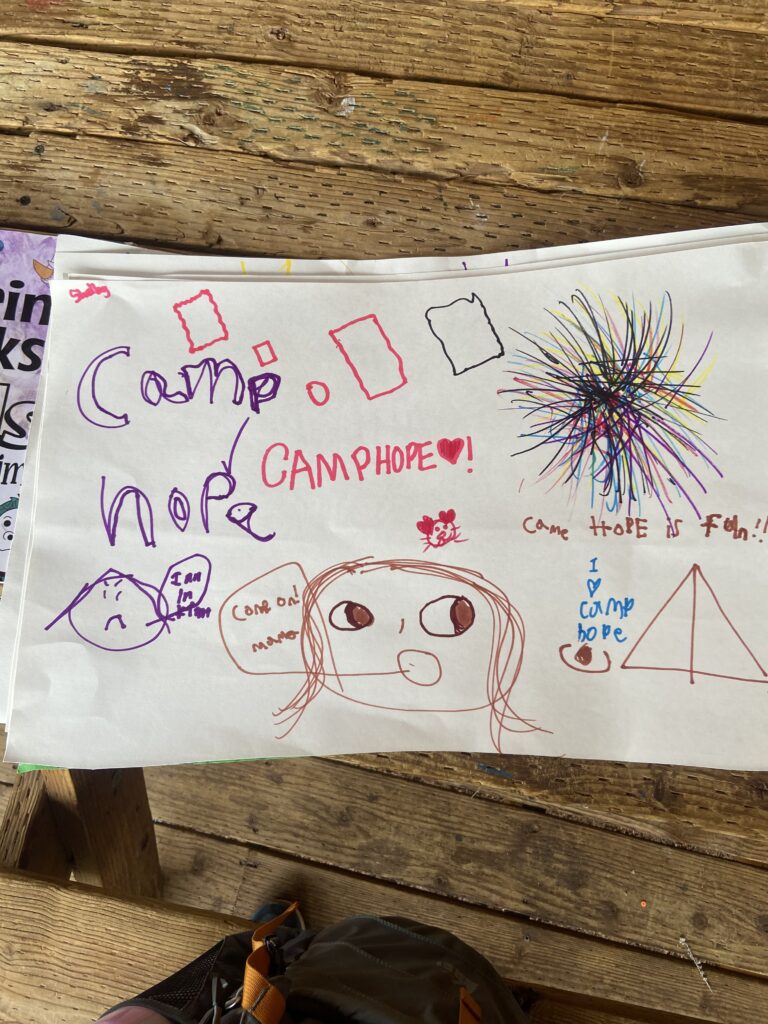

Others Out and About
Many other members of the DCAC team also attended conferences throughout the year. Look for more updates about our team on LinkedIn and Instagram.
